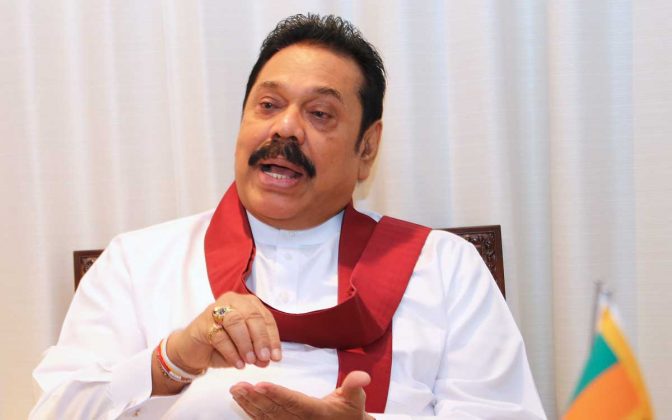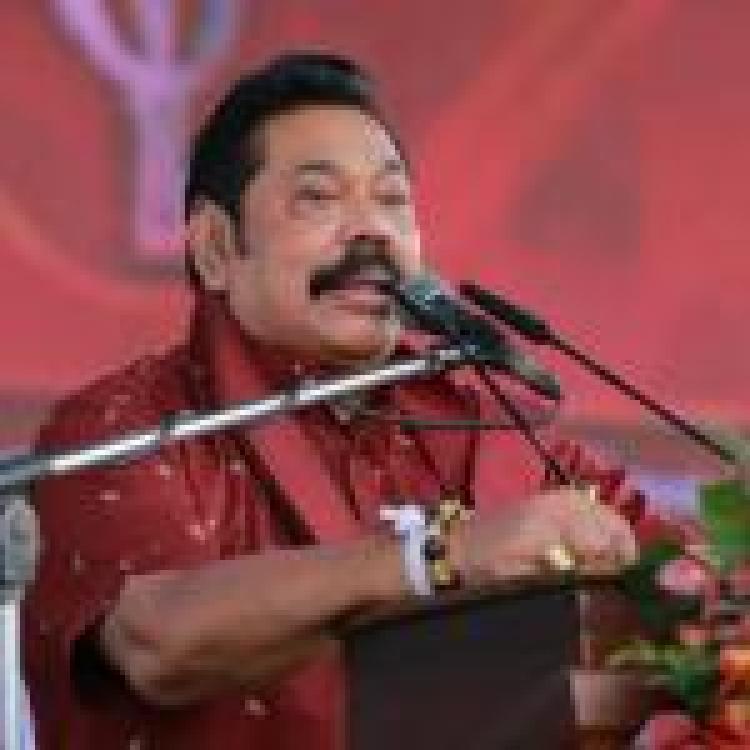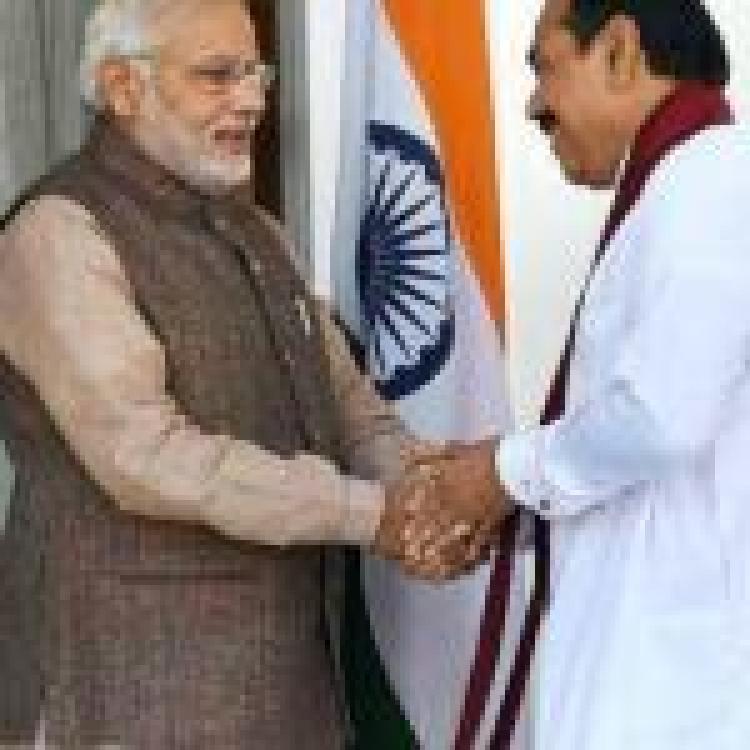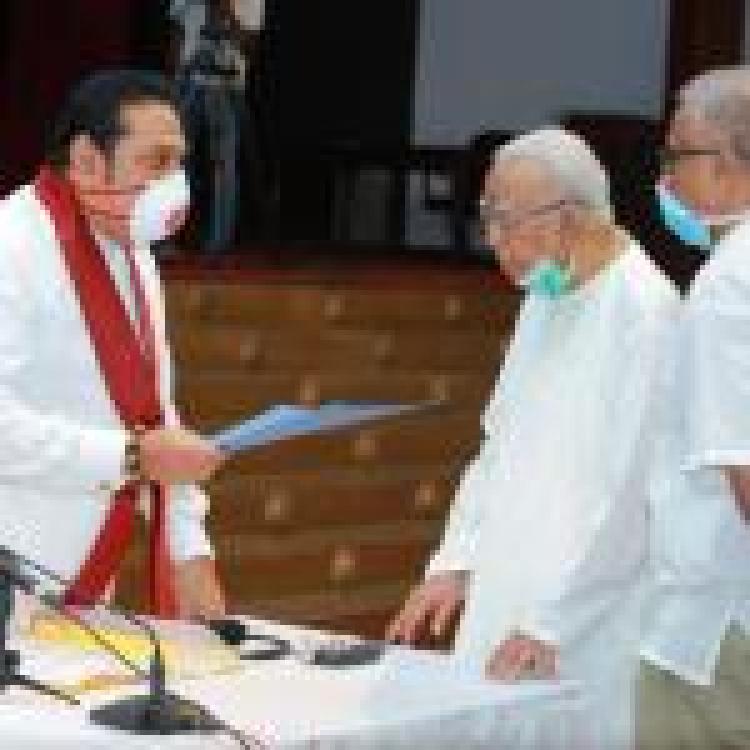
Sri Lankan Prime Minister, Mahinda Rajapaksa, has attacked communal parties, with particular attention to the rival Samagi Jana Balawegaya (SJB), led by Sajith Premadasa, which he claims would have divided the country and invited foreign influence.
Unitary or Undivided
Rajapaksa criticised the SJB’s 2019 manifesto which claimed that, if elected, they would replace the word “unitary” with the phrase “undivided and indivisible” within constitutional descriptions of Sri Lanka’s state. In the past Rajapaksa has described such reforms as a reason for “deep concern”, claiming that it would lead to “a loose federation of virtually independent provincial units”. He further stated that Premadasa’s proposed reforms were identical to reforms proposed by UNP leader Ranil Wickremasinghe in early 2019.
He further claimed that UNP voters are switching to support the SJB because of Wickremasinghe’s perceived weakness. He also accuses the SJB of trying to buy votes through government “handouts”.
“These political parties which were earlier with the UNP, have now shifted their allegiance to the Samagi Jana Balawegaya on the grounds that Ranil is incapable of winning the required number of Sinhala votes whereas Sajith is better positioned to do so. We see the Samagi Jana Balawegaya trying to fulfil their side of this bargain by giving election pledges such as an allowance of Rs. 20,000 for every family. They tried to win the presidential election also with promises of various handouts”.
Rajapaksa further asserted that by removing the wording of the state, they would be giving the international community a greenlight. “The international community can then take note of the fact and act accordingly,” he said. He further spoke out against a supposed nefarious group which he claims attempted to trample on the majority and was made of the same elements in 2010, 2015 and 2019.
Rajapaksa also chastised the SJB for not giving Buddhist leadership prior warning of his proposed reforms.
“This document was presented to the Most Venerable Mahanayake Theras and Anunayaka Theras with a great deal of publicity without however giving them any prior warning about its contents. If they had won the last presidential election, these proposals would have been implemented on the claim that it had received a mandate from the people and the blessings of the Maha Sangha,” he said.
Weakening ethnic parties
The Rajapaksa administration has previously proposed a constitutional amendment which would severely weaken the voices of religious and ethnic-based parties.
The proposed bill would raise the threshold of votes political parties would need to secure from 5 to 12 per cent. This would effectively silence Muslim political parties as well as significantly weaken other parties who will be unlikely to meet this threshold.
The proposed measure requires a two-thirds majority in parliament for it to be able to pass through.
Read more here: ACMC warns of 'dangerous outcomes for Sri Lanka’s ethnic harmony'
Premadasa’s record
![]()
The 2019 SJB manifesto recommended the following proposals:
- Replacing the word ‘unitary’ with the formulation ‘undivided and indivisible’ in describing the Sri Lankan state.
- Devolving the powers of the central government to the provinces to the maximum extent possible.
- Creating a second chamber of Parliament made up of provincial council representatives to further limit the powers of the central legislature.
- Abolishing the exclusive financial powers of Parliament and allowing provincial councils to raise funds independently.
- Placing the district secretaries and divisional secretaries under the purview of the provincial councils.
- Setting up a separate constitutional court to adjudicate in disputes between the central government and the provincial councils.
During the election, however, Premadasa rejected key demands Tamil political parties and vowed to protected alleged war criminals.
More recently, he has pledged that he will work with President Gotabaya Rajapaksa to bring about a “disciplined society” if Rajapaksa wins the upcoming parliamentary elections. He also called for Rajapaksa to “put his foot down” and to carry out his agenda, despite increasing concerns over Sri Lanka’s slide towards authoritarianism.
Communalism and Violence
Rajapaksa conflated communal parties with the Easter Sunday attack, claiming that communal parties enabled ethnic outbidding and radicalisation in the East.
“Our most recent experience of the dangerous consequences of this brand of politics was the Easter Sunday terrorist attack. When a given political party restricts itself to just one ethnic or religious group, they too become prisoners of circumstances. When the extremist preacher Zaharan Hashim built himself a small following in the East, communal political parties had to compete for the votes of that group. That enabled this extremist to summon all communal candidates for election in that district and even impose conditions on them”.
He further asserted that such politics gained national control under the previous administration.
“Through this process, extremists controlled the communal political parties and the communal political parties, in turn, controlled the national political party running the government. Ultimately the extremists indirectly controlled the government. The yahapalana government was not able to prevent the Easter Sunday bombings because they had fallen victim to this brand of politics,” he said.
Rajapaksa is silent on majority ethnic violence from the predominately Sinhala Buddhist community which has plagued Sri Lanka. He is also silent on the number of human rights organisations who have issued warnings against the persecution of Muslims and Tamils in Sri Lanka.
This speech also follows the announcement of two all Sinhala Presidential Task Forces which have been widely criticised by human rights groups and the international community. These tasks forces are seen as a threat to the rule of law and an attempt to further perpetuate the Sinhalisation of the East.
Read more from the Colombo Gazette.




